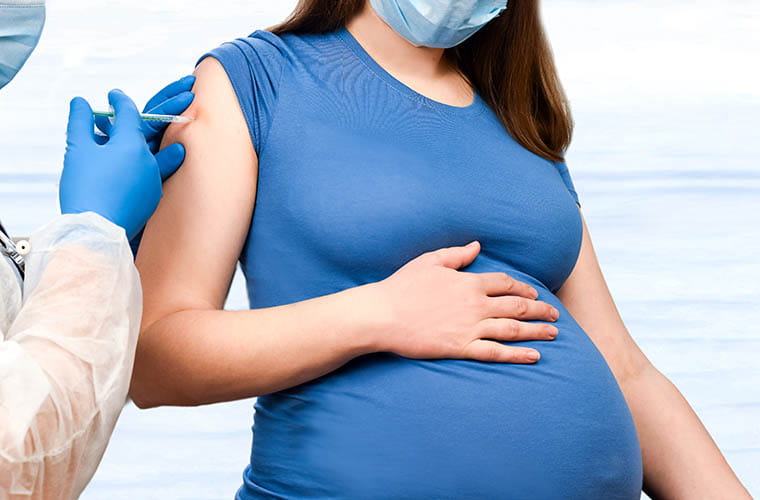COVID-19 Risks on Pregnancy

As COVID-19’s Delta variant continues to spread across the country, pregnant women are at higher risk for severe illness from the virus.
While overall risks remain low, hospitals across the country are seeing a spike in COVID hospitalizations among pregnant women.
To help provide insight into COVID’s effect on pregnancy, here are some ways pregnant women can protect themselves and their unborn babies.
Known Risks
Pregnant women are more likely to get severely ill from COVID than non-pregnant women, according to the Centers for Disease Control and Prevention (CDC). Pregnancy triggers changes in the body, which can make an expectant woman prone to respiratory viruses, including COVID.
Pregnant women with severe symptoms of COVID may need hospitalization, intensive care or a ventilator to help them breathe. Expectant women are also at increased risk for preterm births, pregnancy loss and other poor pregnancy outcomes.
In addition, pregnant women with underlying medical conditions, including age, can be at higher risk for developing severe COVID-19 illness. They are also at higher risk for severe illness if they are living in communities with high numbers of COVID, lack of safety protocols and low levels of vaccination rates.
COVID-19 Vaccine
COVID vaccines that are approved by the U.S. Food and Drug Administration (FDA) have shown to be safe and effective for all people who currently are eligible. This includes people who are pregnant, breastfeeding, trying to get pregnant or could become pregnant in the future, CDC says.
Evidence shows that the COVID vaccine is safe and effective for everyone eligible for the vaccine. The benefits of receiving a COVID-19 vaccine outweigh any known or potential risks of vaccination during pregnancy.
It’s also important to add that there is currently no evidence that COVID vaccines cause fertility problems in women.
Given the scientific evidence, it’s important for pregnant women and breastfeeding moms to get vaccinated. Vaccines can prevent pregnant women from getting seriously ill, becoming hospitalized and risking preterm births. Women who get the vaccine while pregnant can transfer the antibodies into the baby, protecting them in the womb and when they are born.
Like CDC, pregnancy-related medical professional organizations including the American College of Obstetricians and Gynecologists and the Society for Maternal Fetal Medicine recommend the COVID vaccine for pregnant women.
Safety Protocol
COVID-19 infections continue to rise across the country. That’s why it’s important that people, including pregnant women and breastfeeding moms, continue to practice safety measures. While many people are vaccinated, they can still carry the virus and infect others who aren’t vaccinated. Everyone should continue to be vigilant to protect themselves.
- First and foremost, wear a mask when social distancing is hard to maintain.
- Practice social distancing by staying at least six feet apart in closed, crowded spaces.
- Frequently wash your hands and try not to touch your nose and mouth.
- Avoid crowds and poorly ventilated indoor spaces.
For more information on COVID and vaccines, visit BayCare.org/Coronavirus.
